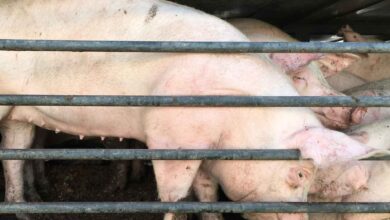Medallists, experts and academics call on Olympic Committee to remove foie gras from menu
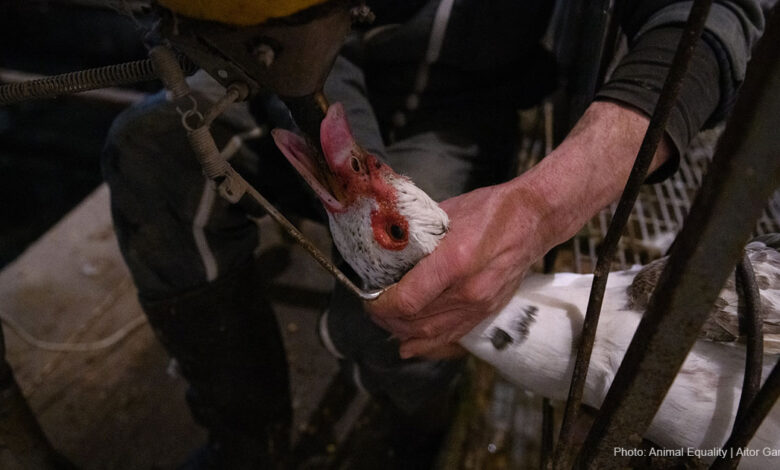
Animal Equality has launched a global campaign urging the Olympic Games Committee to remove foie gras produced through force-feeding from the Games’ menu.
Within a few days, the petition gathered over 40,000 signatures. Now, dozens of athletes, academics, and environmentalists have joined the campaign by writing an open letter to the Olympic Games organizers.
The letter expresses concerns regarding the impact of the foie gras industry on animals, the environment, and human health.
Among the signers are high-profile environmentalist Chris Packham, New Zealand professional tennis player and Olympic bronze medalist Marcus Daniell, and former American cyclist and Olympic silver medalist Dotsie Bausch.
Why is foie gras on the Olympics menu?
This global campaign–and the action of athletes and experts–follow a recent discovery by Animal Equality. Animal Equality has confirmed that foie gras produced through force-feeding will be served on-site to VIP guests purchasing hospitality packages.
This year, the organizers decided to shift their menu towards more plant-based foods. Nearly 60% of the dishes served at the Olympics are vegetarian or vegan.
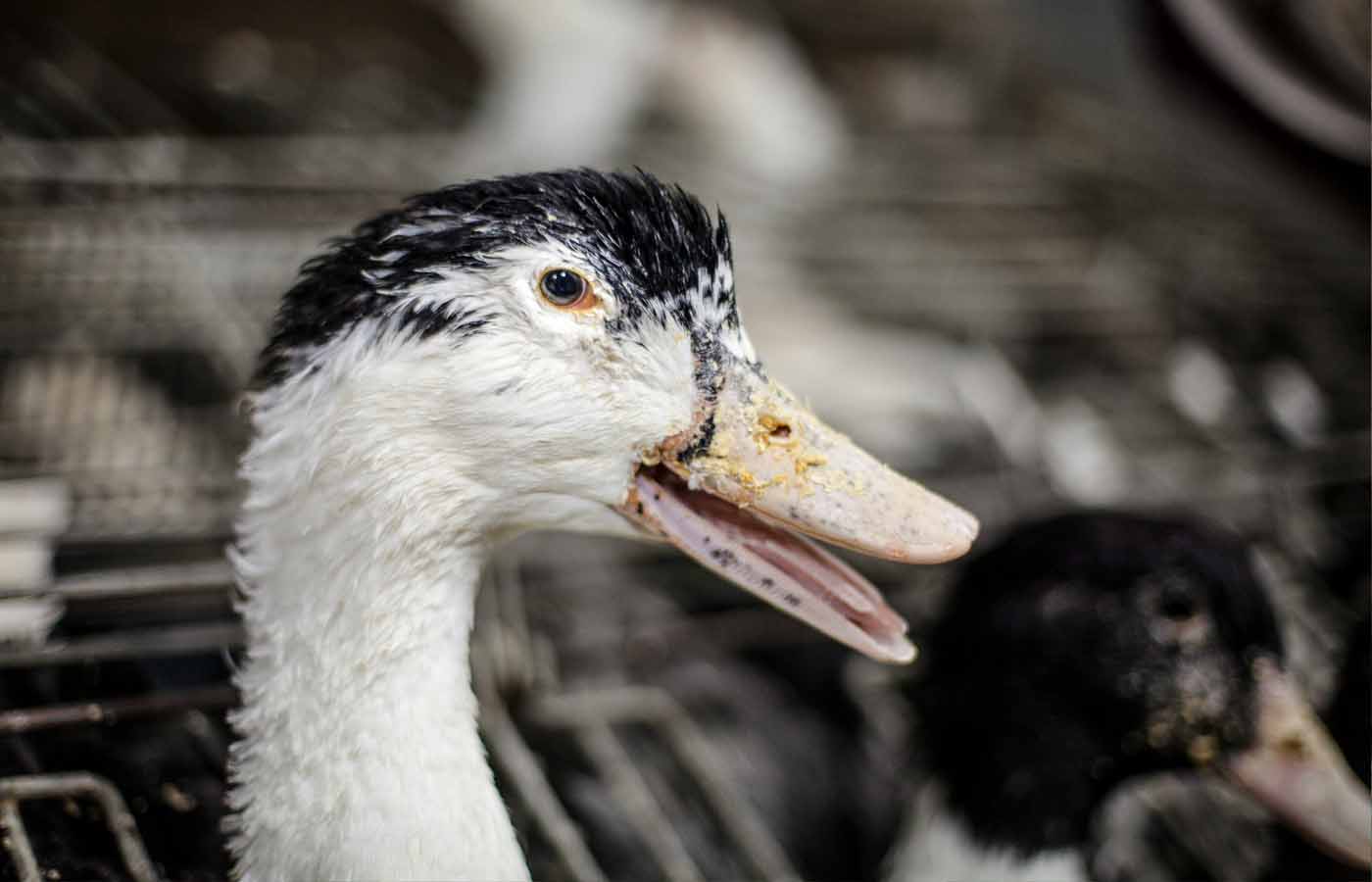
PROTECT DUCKS
Even before hatching from their eggs, ducklings communicate with their close‑knit families.
Protect these families by eating plant‑based and ditching animal products.
Olympic Games Chef, Charles Guilloy, has publicly stated that he will not include foie gras on the spectator menus because “animal well-being is on everyone’s mind.” However, this statement raises even more questions about why this product will be served in the premium lounges.
What do experts say about foie gras?
Veterinarians, animal advocates, and university researchers specializing in infectious diseases, public health, animal behavior, and food systems have joined Animal Equality’s campaign. Together, they’ve outlined their concerns about the impact of foie gras made by force-feeding on animal welfare, the environment, and human health. They’ve lent their support for a letter coordinated by Animal Equality and sent to key decision-makers and members of the International Olympic Committee
Foie gras made by force-feeding is criminal – quite literally in many countries. It causes unimaginable pain to ducks and geese, puts undue pressure on our precious planetary resources, and risks human health. We don’t want foie gras to be featured at the Games, and nor do Olympic medalists, conservationists, and world-leading experts. The organizers of the Paris 2024 Olympics must listen to the experts and remove this dish from its menu at once.
Sharon Núñez, President of Animal Equality
Those supporting the action claim that the organizing Committee is ‘hypocritically signaling to the international community that it is willing to consciously condone and pay for undeniably cruel treatment of animals.’
Ducks and geese used for foie gras are force-fed up to 63 times during their lives, a practice that causes extreme physical and psychological pain. Once the bird’s liver becomes diseased, the animal is slaughtered. Ducks in this industry live 3-5% of their natural lifespan, and geese 2-3% of theirs.
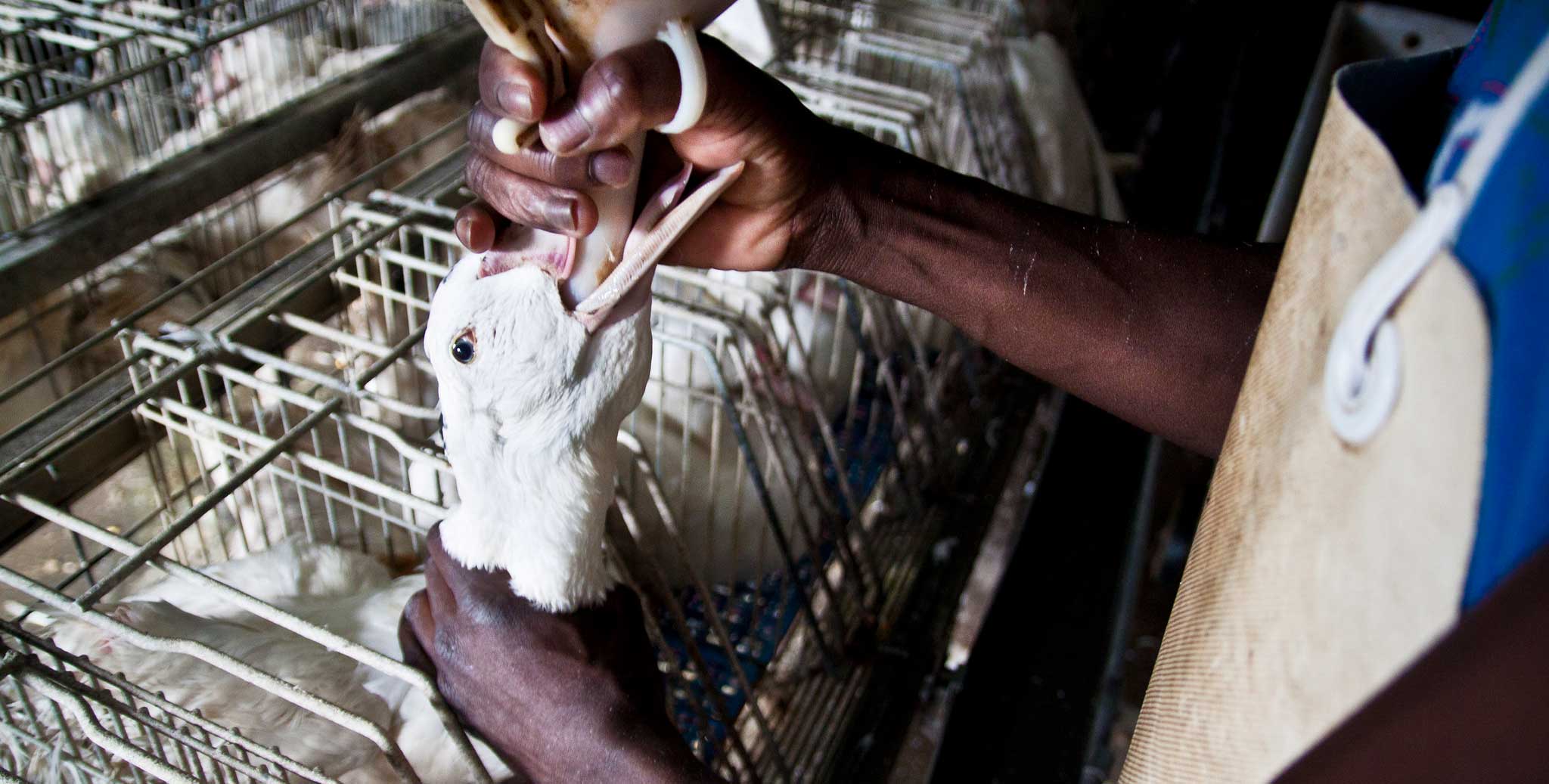
Condemned by many, the force-feeding of animals has been widely criticized for decades and is a crime in many countries, including Italy, Austria, Croatia, the Czech Republic, Denmark, Finland, Germany, Luxembourg, Norway, Poland, and the United Kingdom.
Those supporting the letter believe that the International Olympic Committee ‘must use its influential position to unite the world, not divide it’ and ‘not ignore the concerns of the global population’ by removing foie gras from the menu.
What is the problem with foie gras?
The problems are not limited to ducks and geese: force-feeding these animals requires ‘abundant quantities of corn’ and is responsible for contributing to continued environmental degradation as a result. Experts are alarmed by monoculture grain cultivation and transportation, which harm biodiversity, soil nutrients, water quality, and ecosystems. They also note that using water and synthetic fertilizers increases greenhouse gas emissions.
Foie gras, translated as “fatty liver” in French, also raises health concerns for many. It is rich in saturated fats and cholesterol, which can contribute to the development of heart disease, obesity, and diabetes.
In recent years, foie gras farms in France have been devastated by deadly avian flu outbreaks, raising concerns about the impact that foie gras production can have on individual health and global public health. The letter’s signatories write:
‘The Olympic Games celebrate some of the healthiest and fittest individuals on the planet; featuring foie gras at such an event is, respectfully, an oxymoron.’
Help us get foie gras out of the Olympics
Join over 30,000 concerned citizens from around the world who have already signed our petition to the Olympic Games organizers.
The Olympics represent friendship and inclusivity: foie gras has no place there. We want this cruel product to be removed from the menu, are you with us?



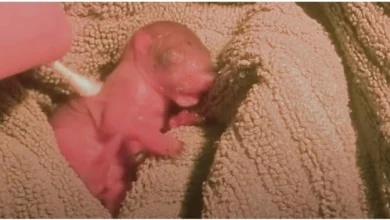

![Price of a Jindo dog by region of the United States [2024]](https://news7g.com/wp-content/uploads/2024/04/anton-bjorkman-F3JVBSl15NU-unsplash-e1714510704100-390x220.jpg)

